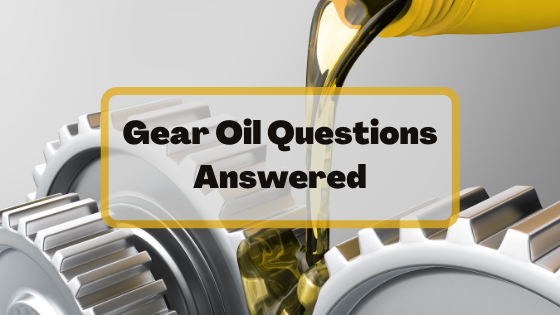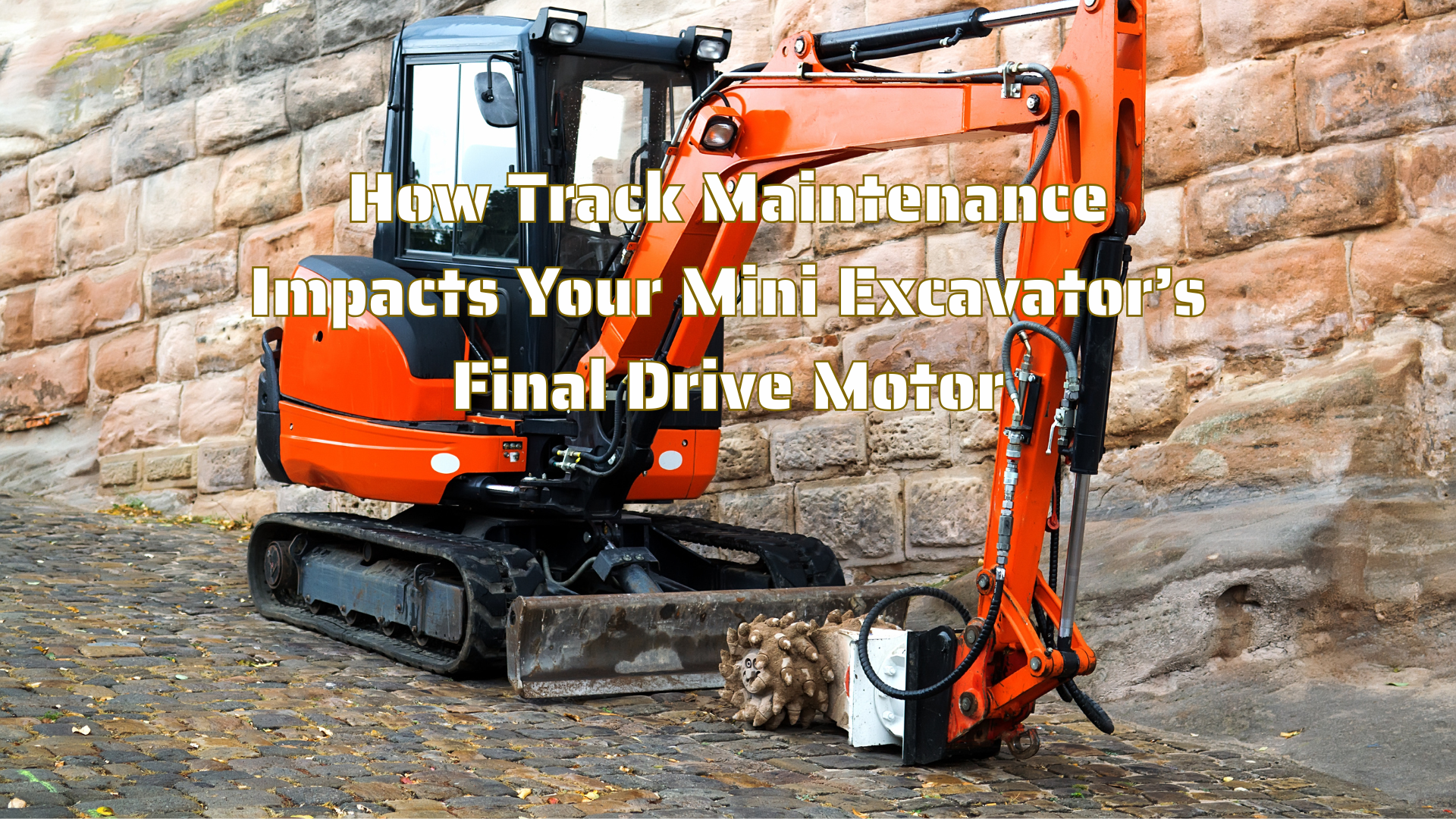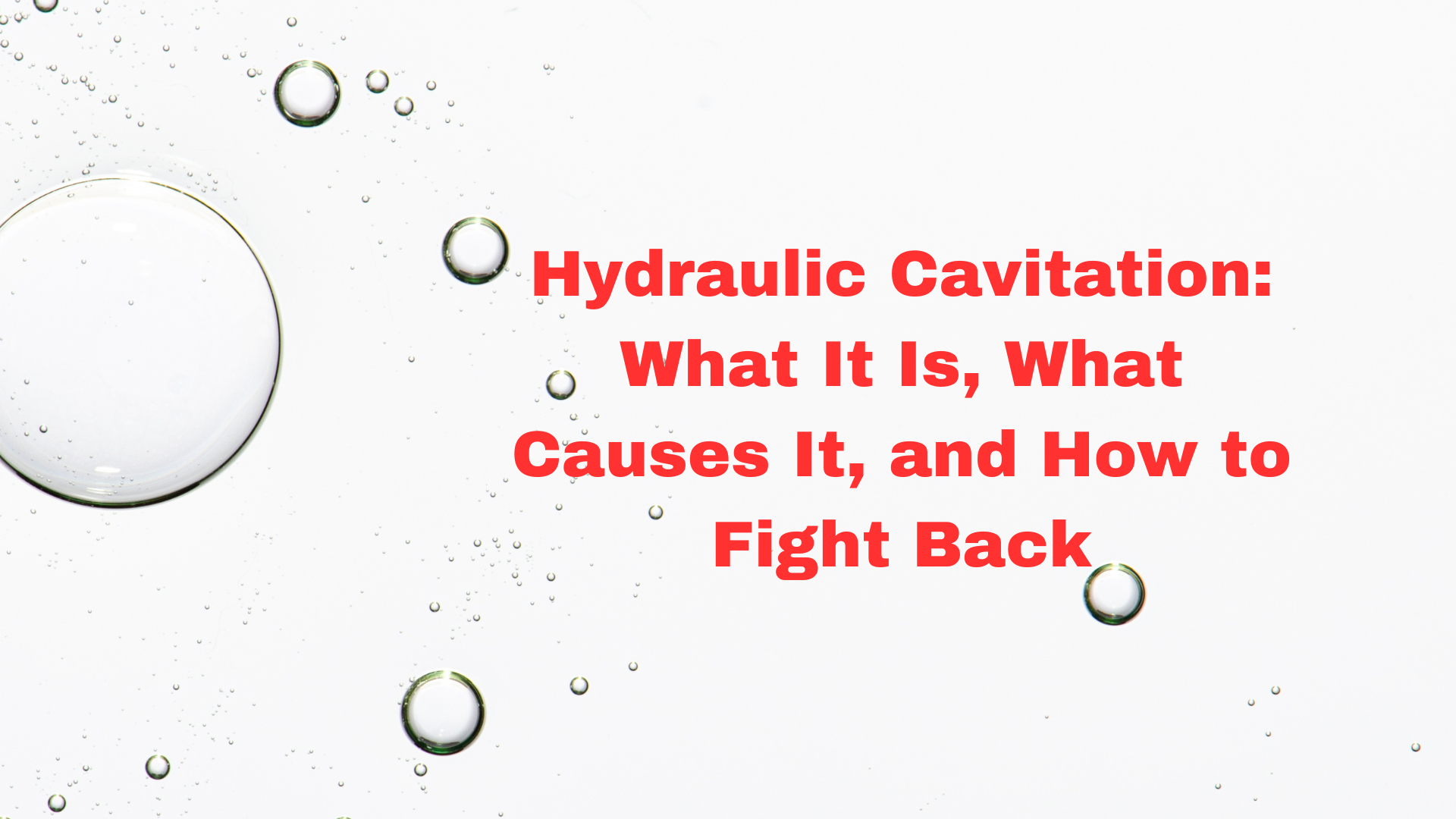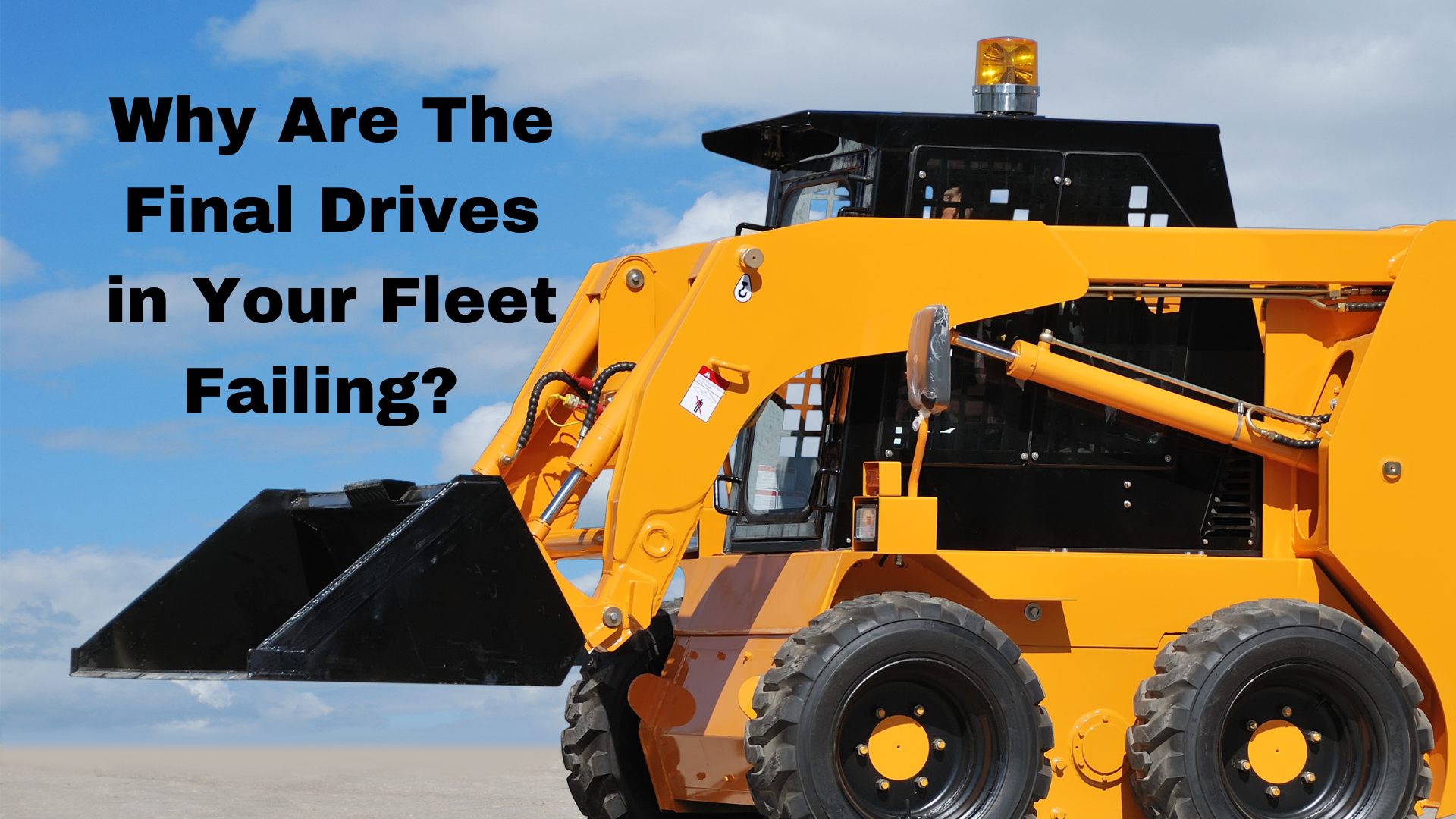Gear Oil Questions Answered
Posted by Dr. Sara McCaslin on May 23rd 2021
Gear oil is vital to your final drive. And whether it's a track motor on a compact excavator or a wheel motor on a hard-working skid steer loader, you need to know the answers to these questions to ensure good performance and a long life.
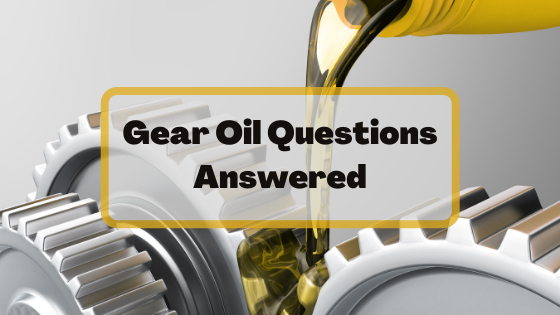
Here are a few other Shop Talk Blog posts you might find useful:
- Diagnosing a Final Drive Motor That is Screeching
- The Basics Of Final Drive Motor Seals
- Travel Drives Gone Wild
A Few Basic Facts About Gear Oil
Gear oil (also called gear lube) is a special type of oil that lubricates the planetary gear system in your final drive. As such, it must have enough viscosity to do a good job of coating the bearings, gear teeth, and axle while not being so thick that it makes it difficult for those components to do their job. The fact that it is a lubricant means it should be able to reduce friction and aid in carrying away generated heat from key components. And it must be clean of contaminants that could lead to abrasion or corrosion.
What Type of Gear Oil Should I Use in my Final Drive?
Let's preface this by saying you should always use what the manufacturer of your equipment recommends. And for planetary gears, they usually recommend 80/90W. Note that this type of gear oil contains an EP (extreme pressure) lubricant that may give it a sulfurous smell. EP gear oil is made to provide excellent lubrication coverage despite the high forces and torques involved with a speed reducing planetary gear set.
When Should I Check Gear Oil Levels?
Gear oil levels should be checked about every 100 working hours. If you notice the levels seem to be low, its fine to top it off with some clean gear oil of the same type. Don't mix different types of gear oil, however -- and don't use grease if the gear oil has leaked completely out. In fact, if you notice that you have to top it off almost every time you check it, then you should check for a leaking seal.
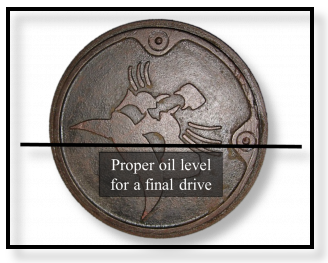
When Should I Change Out Gear Oil?
Gear oil should be completely changed out once a year -- and this is one of the most common maintenance tasks that people fail to perform. And technicians know when you haven't bothered to change out the gear oil. It will have a terrible odor associated with it, will be dark in color, and have a very thick consistency. And if you let the gear oil in your final drive motor reach that state, it's doing far more harm than good.
What If I See Metal in My Gear Oil?
You may see the metal slivers or powder in the gear oil when you drain it, or on one of the magnetic plugs when you check the gear oil levels. That is never a good sign, and likely points to a bearing that is beginning to fail or gear teeth / splines that are wear out fast. This is NOT something to ignore. If this is ignored, you may end up with a totaled final drive motor. When bearings fail, they can break into pieces and damage everything else in that planetary hub. Needless to say, that is a far more extensive and costly repair than simply replacing the bearings.
Is a Gear Oil Leak Bad?
The short answer is a resounding yes. When gear oil leaks out, then the planetary hub doesn't have enough lubricant to do its job without damaging the gears, bearings, and splines. But, to make matters even worse, a leak means that outside contaminants can also make their way inside the planetary side. Water, sand, grit, dirt, mud, silt, and more can work its way inside. Once there, these contaminants compromise the performance of the lubricants and damage critical surfaces, like the needles and balls in the anti-friction bearings.
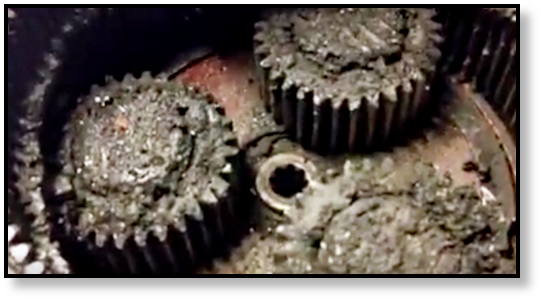
Is Grease a Good Replacement for Gear Oil?
Sometimes you just don't have time to get the seals on your final drive replaced but you've got to keep running your machine. One thing you should NEVER do is add some grease to your drive motor in the hopes that it will keep everything lubricated until you can send your drive in. This does far more harm than good -- your drive was engineered to use gear oil, not grease.
Conclusion
Consider gear oil an investment in the life and operation of your final drive motor. And here's a quick summary the key maintenance tasks involving gear oil:
- Use the right gear oil and never mix different grades
- Check gear oil levels about every 100 working hours
- Change gear oil once a year
- Keep an eye out for signs of metal in your gear oil
- Don't ignore potential leaks!
Staying on top of these basic tasks will go far in keeping your final drive motor running smoothly!


